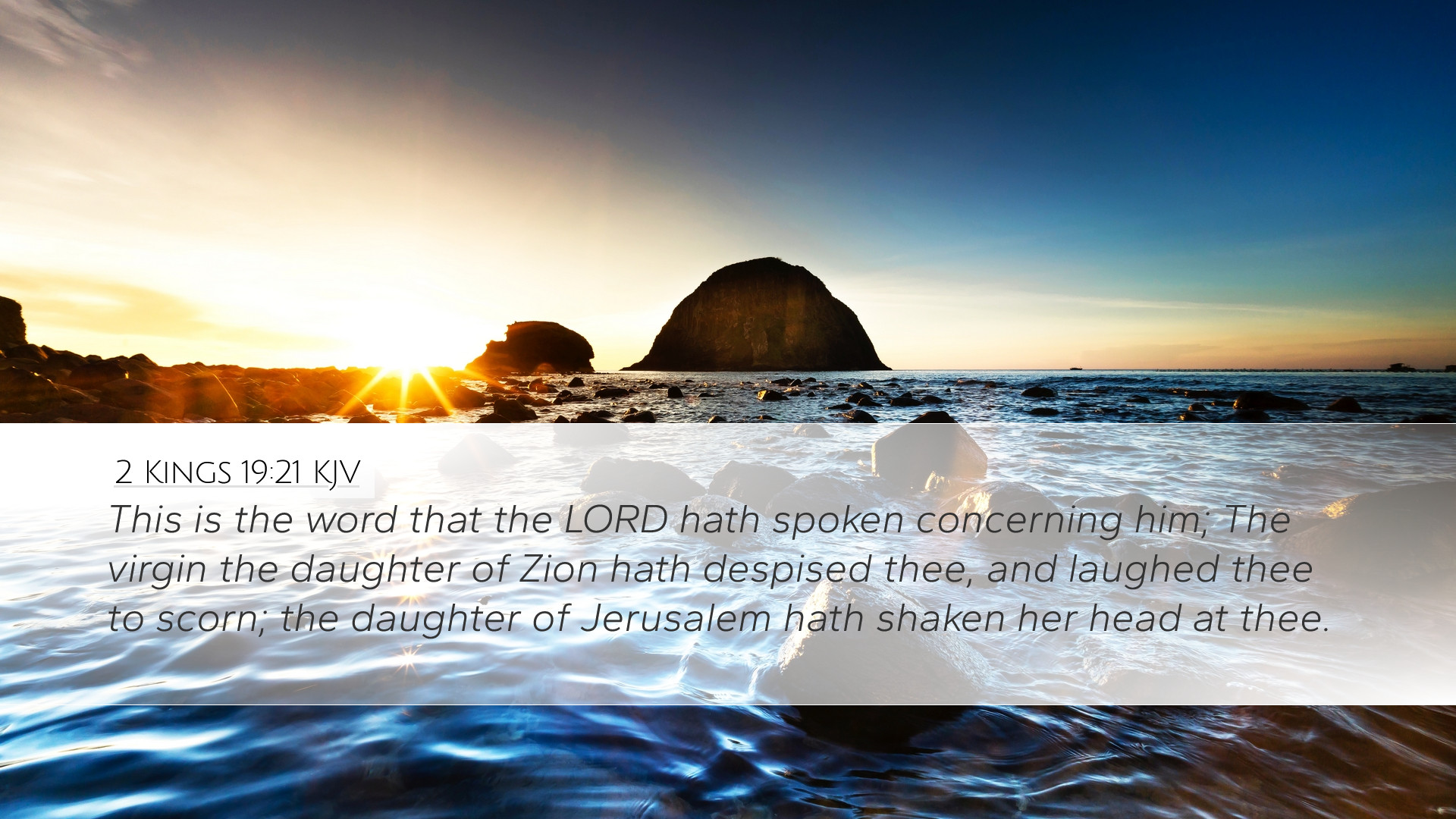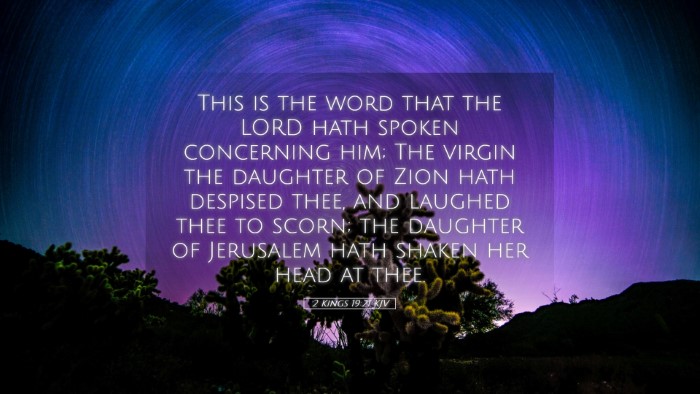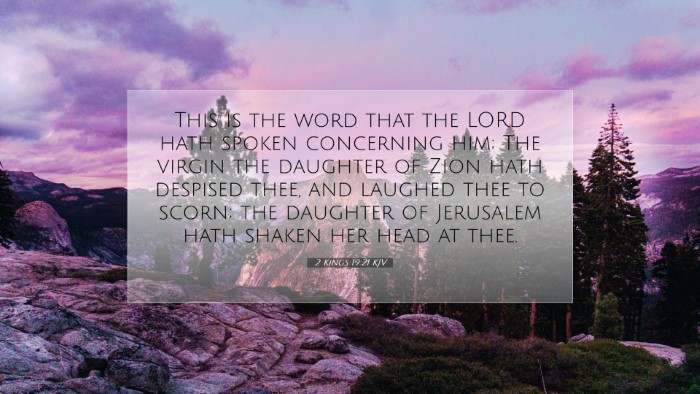Commentary on 2 Kings 19:21
Bible Verse: “But this is what the LORD says against the king of Assyria: 'He will not enter this city or shoot an arrow here. He will not come before it with shield or build a siege ramp against it.'”
Introduction
This verse occurs in the larger context of God's deliverance of Jerusalem from siege by the Assyrian king Sennacherib. It reveals God's definitive stance against the threats posed by earthly powers when His people are under duress. The insights from public domain commentaries highlight God's sovereignty, the significance of prophetic words, and the deliverance that comes through faith and divine intervention.
Contextual Background
-
Historical Background:
The Assyrian Empire was a dominant force in the ancient Near East, known for its military prowess and tactics. King Sennacherib's assault on Jerusalem represents a pivotal moment in the history of Israel. The Israelites were in dire straits, and fortifying the city was not an option due to overwhelming enemy forces.
-
Prophetic Context:
This verse follows Hezekiah’s earnest prayers and Isaiah’s prophetic assurance that God would protect Jerusalem. It underscores the role of prophecy during a time of crisis and emphasizes the assurance provided to God's people in the face of imminent danger.
Interpretations and Insights
Divine Assurance
Both Matthew Henry and Albert Barnes comment on the aspect of divine assurance represented in this verse. Matthew Henry notes, “God’s word against Sennacherib was a word of promise to His people,” emphasizing that God's declarations carry both comfort and a reminder of His omnipotence.
Redefining the Human Perspective
Adam Clarke articulates the way in which God’s response nullifies human perceptions of power. The king of Assyria might be seen as invincible, yet God reassures His people that no military strength can thwart His plans. Clarke writes, "Although the might of the Assyrians and their tactics seem formidable, God’s power is unmatched.”
The Nature of Heavenly Intervention
In examining 2 Kings 19:21, it is essential to highlight the nature of God’s intervention. The commentary suggests that divine intervention is not always evident through grand spectacles but can manifest quietly through the fulfillment of His promises. Henry states that “God’s intervention provides both a shield and a stronghold for His people.”
The Unexpected Nature of God’s Deliverance
-
Absence of Traditional Warfare:
This prophecy indicates that conventional warfare tactics will not occur. God’s ways often defy human expectations. Barnes remarks, “This illustrates the divine ability to save without reliance on the usual strategies of man.”
-
God’s Sovereignty:
Sennacherib’s hubris is contrasted with God’s sovereignty. The verse serves as a reminder that God uses the seemingly weak and unlikely circumstances to accomplish His will. Clarke notes, “The alliance of divine will and human frailty showcases the might of faith.”
Lessons for Believers
This verse, while historical, carries timeless principles for faith communities. The theme of trust in God amidst external threats encourages believers today to rely not on earthly powers but on divine promises.
Encouragement in Trials
Pastors should draw from this verse the importance of encouraging their congregations to look to God during difficult times. As Henry expresses, “Faith is the assured confidence in God’s promises.” This encapsulates the essence of spiritual resilience.
The Significance of Prophetic Voices
The role of prophets and the delivery of God’s messages through them can be likened to the need today for faithful teaching and preaching. Jesus' reassurance to His disciples echoes this: “Do not fear, for I am with you.”
Conclusion
In summary, 2 Kings 19:21 encapsulates the theme of God’s absolute sovereignty over earthly powers. Through the insights provided by esteemed commentators such as Matthew Henry, Albert Barnes, and Adam Clarke, we uncover the profound theological implications of God's promises and the unshakeable nature of His will. For pastors, students, and scholars, this verse serves as a call to deeper faith and trust in God’s omnipotent presence amidst life’s trials.


